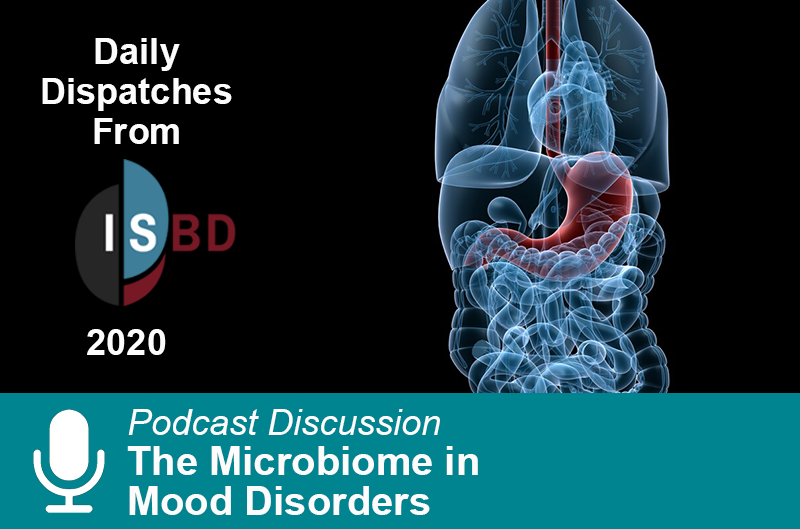The Microbiome in Mood Disorders
, Volume , Number ,
https://www.thecarlatreport.com/#
This week we’re podcasting from the International Society for Bipolar Disorders 2020 conference, where we’ve been scouring the virtual halls for all that is practical and newsworthy. The yield is high so tune in for a new episode every day. Today, an up-to-date review of the microbiome in mood disorders. Published On: 7/5/2020 Duration: 6 minutes, 33 seconds Transcript: This week we’re podcasting from the International Society for Bipolar Disorders 2020 conference, where we’ve been scouring the virtual halls for all that is practical and newsworthy. The yield is high so tune in for a new episode every day. Today, an up-to-date review of the microbiome in mood disorders. Welcome to the Carlat Psychiatry Podcast, keeping psychiatry honest since 2003. I’m Chris Aiken, the editor in chief of the Carlat Report. And I’m Kellie Newsome, a psychiatric NP and a dedicated reader of every issue. The mind-gut connection is implicated in psychiatric disorders from autism to schizophrenia, and the conference featured a review of this research in bipolar and depression. Gut microbiome is involved in neurotransmitter production, regulation or stress hormones like cortisol, and inflammation. People with bipolar and depression have less diversity than normals, and transplanting stool from a depressed person to a mouse will cause depressive behaviors in the mouse. Lithium increases biodiversity in the gut, while antipsychotics decrease it. There are 93 Studies that measured how changes in gut microbiome affected mood, whether changes from diet or taking a probiotic. About a third of those studies are in healthy community populations, another third in people with medical illnesses like irritable bowel syndrome, and the final third are in mental health disorders ─ mainly depression. So – does improving the microbiome help depression? Here’s what they found: For depression outcome… Community populations, SMD effect size 0.18, range 0.04 to 0.32 Medical populations SMD effect size 0.35, range 0.13 to 0.57 Mental Health populations: Data not pooled, but 8 publications, 1 was TRD by Myaoka 2018 found large effect 16! Overall effect not pooled but SMD effect sizes of: 0.6, 0.5, 0.7, 0, 16, 0.5, 0, 0.6, no bipolar, each study had 20-40 patients, about 6/8 were positive. There are two controlled trials of probiotics in bipolar so far, one was negative and one positive. We covered the positive one in our November 2018 issue, it found an 8-fold reduction in rehospitalization rates when patients were started on a probiotic during hospitailization for bipolar mania. Interestingly, though, that study found no benefit in mood measures, which suggests that the probiotic may be helping in other ways that aren’t captured on a rating scale, such as preventing the internal changes that trigger new episodes are improving executive functioning. The second study just came out a month ago. It randomized 38 patients with bipolar I to probiotic or placebo. After two months the probiotic brought only non-specific improvements in manic and depressive symptoms, so technically they found the same thing as the positive study but just measured different outcomes. This is the last in our special edition on bipolar disorder and we want to hear from you about the new format. Did you like having a new, brief episode every day? Should we keep it up? Let us know by leaving a review in your podcast store. We’ll be back tomorrow with a special edition you can share with your patients: A Mindful Routine for Borderline Personality Disorder. We’ll have more updates in our print issue, including unpublished results on a new medication for bipolar depression and a full review of the modafinils in bipolar disorder. Got feedback? Take the podcast survey. 
Comments
Leave A Comment
You must be logged in to post a comment.




I enjoyed the brief podcast and believe it is quite interesting for my outpatient population. I currently encourage the use of fruits, vegetables, exercise (mild to moderate) and the ingestion of Juice Plus. I have seen a fairly significant improvement in my patient population diagnosed with Major Depression, various Anxiety disorders, ADHD, and Bipolar disorders. Thank you.